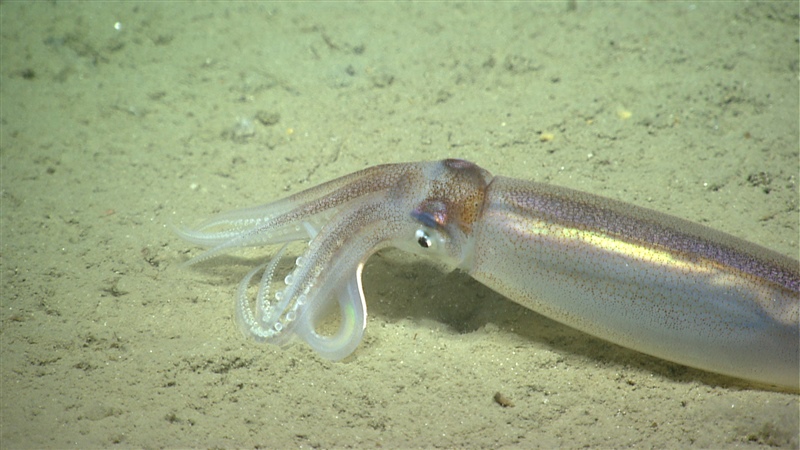Researchers at the National University of Ireland Galway (NUIG) have identified new relationships between different species of oceanic squids, solving a longstanding mystery.
A multinational study from 2018 described relationships between different cephalopods as “difficult to resolve” and said that “consensus remain[ed] elusive” for phylogenetic (i.e. concerning the evolutionary relationships of species) classification of molluscs, the 85,000-species phylum of which squids are a part.
The new Irish study, published in the Zoological Journal of the Linnean Society, used a DNA analysis method called genome skimming to assess hypothesised groupings of oceanic squids. This technique involves shallow sequencing of the genetic information about an organism, allowing for quicker, cheaper, and larger-scale analysis at the cost of detail.
Dr Fernando Angel Fernández-Álvarez, a researcher in the NUIG school of natural sciences, was the lead author on the study. He said the aim of the project was “to solve the relationships among this amazing group of animals.”
The research looked at the genes of 35 selected species of oceanic squids. It found that several taxonomic families used to classify the creatures, some proposed by zoologists more than a century ago, are not sufficiently genetically distinct from each other and should be merged.
On the other hand, the team found what they believe are evidence of several new “superfamily”-level groupings, as well as cause to resurrect previously proposed ideas for other superfamilies, and to elevate some “subfamilies” to the classification of family.
“All in all, the research makes a case for a fairly significant re-ordering of the evolutionary tree of oceanic squids.”
All in all, the research makes a case for a fairly significant re-ordering of the evolutionary tree of oceanic squids.
“I believe this study is an important milestone for the field and a good starting point for performing in-depth studies on the evolutionary trends that shape the huge diversity of oceanic squids,” Fernández-Álvarez continued.
Professor Louise Allcock, also of the NUIG school of natural sciences, echoed this sentiment: “Oceanic squids are an amazingly diverse group of cephalopods – molluscs with arms and tentacles like squid, octopus and cuttlefish – with fascinating adaptations to their watery environment.
“For example, glass squids use their body cavity as a fluid-filled buoyancy chamber, while chiroteuthids develop fishing lures at the end of their tentacles.”
“This study also highlights the importance of public scientific collections in addressing long-standing scientific issues,” Allcock continued. “We supplemented the material we collected ourselves with samples from various museums including the Smithsonian Institution in the US, the Biological Reference Collection of the Marine Science Institute in Spain and the Australian Museum, allowing us to have a truly comprehensive oversight of oceanic squids globally.”
The study received funding from the Irish Research Council.






